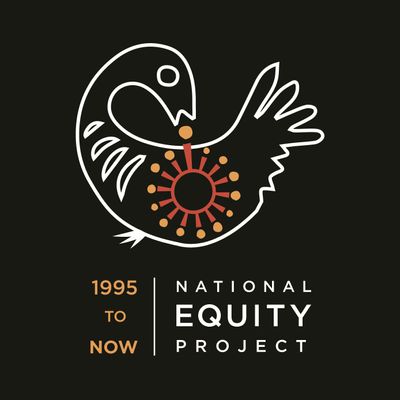
About this Event
The Centering Student Identity: Learning Partnerships and Teaching for Equity Course offers an introduction to our signature Learning Partnership framework and draws from the work of our colleague Zaretta Hammond (author of Culturally Responsive Teaching & the Brain). Moving from “big picture” conversations about equity to effectively changing classroom practices can be a big hurdle for schools, districts and the individuals who make up those organizations. Learning Partnerships enable educators to build trust with students across differences of identity (race, gender identity, class, family background, life experience, etc.) and leverage that trust in service of increased student engagement and ownership of learning.
The Learning Partnership framework and identity-focused discussion presented in this series seek to redefine traditional teacher-student dynamics. The goal of this work is to foster authentic learning and a sense of belonging in the classroom by prioritizing reciprocity and alliance in relationships with students. Emphasizing the importance of deeply knowing and understanding students' identities and cultures, this approach celebrates diversity as a strength within classroom communities. It offers a valuable addition to the toolbox of educators and anyone working with young people, as it acknowledges the sacred responsibility of serving communities, harnessing students' inherent brilliance and power, and collectively envisioning a more just and equitable world.
Characteristics of a learning partnerships:
- Builds capacity to work across dimensions of identity, mindset and skills—of both the learner and leader/teacher
- Focuses on the goal of accelerating the learning (and learning capacity) of both the learner and the leader/teacher
- Uses a “focal student” approach where the teacher focuses on shifting their relationship and approach with a small number of students outside the “sphere of success” in service of learning to shift outcomes for larger groups of students
Participants will:
- Learn about the impact that identity, mindsets and learning conditions have on the relationship between student and teacher - focusing on the salience of identity and how it influences a student’s academic and social-emotional experience in the classroom.
- Build an understanding that all learning is socially mediated and reflect on the implications of this for their work with young people - considering how a students’ ability to engage and learn is directly impacted by the extent to which they feel safe, seen, soothed and secure within the relationship with their teacher.
- Recognize how systemic oppression operates in schools and classrooms in ways that activate a neurological and physiological threat responses in students, and learn how neuroscience can support educators to create identity affirming learning environments where students feel safe to learn.
Who should attend:
- Educators of any experience level who are seeking to build culturally responsive and sustaining teaching practices that honor, celebrate, and center the identities of their students.
- Any adult working to serve school-aged youth that desires to strengthen relationships with students in service of improving opportunities and outcomes for the communities they serve.
- Coaches, administrators, or other professionals that support the development of educators to create conditions for increased engagement and deeper learning in classrooms.
“The teacher is of course an artist, but being an artist does not mean that [they] can make the profile, can shape the students. What the educator does in teaching is to make it possible for the students to become themselves.” ― Paulo Freire
Virtual Course Schedule
Thursday, November 7, 2024 and Friday, November 8, 2024 | 3:30 pm–6:30 pm Pacific
This course will be delivered in two live, 3-hour interactive learning sessions conducted online in Zoom. Attend live sessions with facilitators and fellow participants; learn and practice new skills both in session and in your own context between sessions. Participants receive electronic versions of all resources and tools with the option to purchase a hard copy of the resource guide.
We are intensely focused on humanizing our virtual spaces. We focus on interactivity and connection (these courses are not webinars), frequent screen and body breaks, and attending to learning, practice, and healing in community with people across the country.
Accessibility
We provide an advance draft of our slide deck 24 hours before the session and enable live transcription and closed captions during the live Zoom session. Our sessions are recorded (absent any technical difficulties) and can be accessed for up to 30 days after the course concludes.
Registration & Payment
Course fee: $500 per person
Limited tickets for this event are offered on a Sliding Scale / Pay What You Can Model. For more information about how NEP's Sliding Scale Model works and guidance on how to determine what to pay please visit bit.ly/NEPSlidingScale
You will receive a password-protected Zoom link and any other pre-reads and resources prior to the event via email.
Registration by credit card on Eventbrite is our preferred method. We are a small (but mighty) organization and processing and collecting check payments for our events has a high administrative impact.
Please visit our registration page on our website for information on paying by check or purchase order and our cancellation and registration transfer policy.
Event Venue
Online
USD 0.00 to USD 500.00












